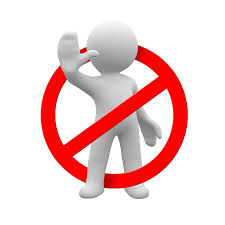Risky Move, Would You Tell Your Customers Not to Buy a Product You Sell?
 The short answer is probably no, why would you think of such a thing? Or, if I wouldn’t recommend it, why would I carry it? But looking at the bigger picture, you may change your mind.
The short answer is probably no, why would you think of such a thing? Or, if I wouldn’t recommend it, why would I carry it? But looking at the bigger picture, you may change your mind.I read a story on PRI about a grocery store in Italy that ran ads recommending their customers not buy bottled water at their store, or if they do, only buy local bottled water. If the store’s customers listen, the company stands to lose $140 million dollars over the next eighteen months.
This drastic action is one result of the company’s going green efforts. They discovered during a life-cycle analysis of bottled water that the biggest environmental impact is in the transportation. “Drinking tap water pollutes less” is the message in the commercial they created.
Whether you agree with such an unconventional approach or not, they have successfully done two things: Take a public stand and Do what others are not doing. Both have risks and both have the potential to make or break the company’s brand.
Let’s be honest, business is about taking risks. Some are bigger than others and some have the potential to do more long-term damage. But without risk or change, how can you expect to be in business for the long-term?
Taking risks allows companies to take steps toward achieving their bigger goals and puts them in a position to either redefine their industry or carve out a niche creating the potential for a loyal following. Loyalty is created by taking sides, saying that one is right while the other is wrong—or that the customer supports one over the other.
When done right, promoting the opposite cause in marketing can be beneficial. But that is the key; it needs to be done right and respectfully. Short-term results will include a lot of ‘rocking the boat’ and upsetting some clients, prospects and the market in general. It also opens the door for a whole lot of publicity because you are saying or doing something that no one else is. Doing something unexpected or even seemingly contradictory gives people a reason to remember you long term. The challenge is will they remember you for what you wish to be remembered for? That is how you will know if you have done it right.
Categories
- Blog Articles (157)
- Client Case Studies (18)
- Services Available by Omicle (8)
- Omicle In the Media (34)
- AI in Marketing (1)
- Brand Experience Strategy (48)
- Branding Strategies in Marketing (87)
- Hiring a Fractional CMO or Marketing Agency (11)
- Category Design (2)
- Customer Experience Strategy | CX Strategy (56)
- Develop a Growth Mindset Marketing (31)
- Effective Digital Marketing Strategy (55)
- Go To Market Strategy (31)
- Marketing Operations Strategy (17)
- Holiday Marketing Strategies (2)
- Impact of Business on the Economy (57)
- Executive Personal Branding (37)
- Scaling Your Business (47)
- Scaling Your Business HUSTLE Stage (37)
- Scaling Your Business GROWTH Stage (41)
- Scaling Your Business TRANSFORM Stage (27)
- Importance of Diversity and Inclusion | DEI (3)
- Multi-Generational Marketing Strategy (11)
- Social Media Marketing Strategy (43)
- Strategies to Build Brand Loyalty (34)
- Guest Post (6)

